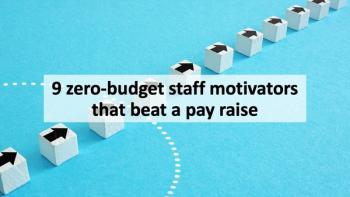
Behavioral finance: A guide for physicians and dentists as business owners
The impact of behavioral biases on health care business decisions.
As healthcare professionals and business owners, physicians and dentists face numerous financial decisions that can significantly impact their practices and personal wealth. While medical and dental expertise is crucial for patient care, understanding behavioral finance principles is equally important for making sound business decisions. Explore how cognitive biases can influence your decision-making process and review the strategies to overcome them.
Behavioral finance combines psychology and economics to explain why individuals often make irrational financial decisions. For healthcare professionals running their own practices, recognizing these biases is crucial for
1. Overconfidence bias: The danger of excessive self-assurance
Overconfidence bias occurs when individuals overestimate their knowledge, abilities, or chances of success. In the healthcare business context, this can lead to risky decisions and missed opportunities.
Christine Hoge, DDS, a successful endodontist in New Jersey, decided to expand her practice by constructing a larger office building. Despite market research suggesting a potential oversupply of dental services in the area, she proceeded with the expansion, confident that her reputation would attract enough patients to fill the new space. Her overconfidence led to significant financial strain when patient numbers failed to meet expectations.
To mitigate overconfidence bias:
- Seek objective data and expert opinions before making major decisions
- Conduct thorough market research and financial projections
- Consider worst-case scenarios and develop contingency plans
2. Confirmation bias: Seeking information that supports preexisting beliefs
Confirmation bias involves the tendency to search for, interpret, and recall information in a way that confirms one's preexisting beliefs or hypotheses. This bias can lead healthcare professionals to overlook critical information that contradicts their initial judgments.
Along the Gulf Coast, dermatologist Mike Johnson wanted to begin a gradual transition into retirement. He was adamant about not selling to the nearby hospital systems and decided to bring on a partner to share the workload and expand the practice. Johnson was introduced to a candidate who had recently graduated from his alma mater and immediately liked their personality and approach. Despite the warnings from his practice consultant about the personality and stylistic differences, Mike focused on information that supported his initial positive impression, overlooking red flags about the candidate's financial history and work ethic.
To combat confirmation bias:
- Actively seek out diverse perspectives and opposing viewpoints
- Implement a structured decision-making process that considers all available information
- Encourage team members to play devil's advocate and challenge assumptions
3. Proximity bias: Favoring what's familiar and close
Proximity bias leads individuals to prefer things, people, or ideas that are familiar or physically close. In a business context, this can result in missed opportunities or suboptimal decisions based on comfort rather than objective analysis.
This behavioral tendency shows up often when selecting a location to open a new practice. Sheila Garcia, DDS, a newly trained oral surgeon, decided to open a practice in her hometown despite market research showing better demographics in a neighboring city. Her familiarity with the area and desire to be close to family overshadowed the potential for greater success elsewhere.
To address proximity bias:
- Conduct thorough market research across multiple locations
- Use objective criteria to evaluate business opportunities
- Consider the long-term implications of location decisions on practice growth and profitability
4. Framing: How information presentation affects decisions
Framing refers to how information is presented and how it influences decision-making. The way options are framed can significantly impact the choices business owners make for their practices.
Vikram Patel, MD, a cardiologist in North Carolina, manages his own 401(k) account, which had an impressive 25% gain last year, with his December statement showing a balance of $400,000. However, recent market fluctuations caused the current balance to drop to $380,000. When Patel compared his current balance to the all-time high, he felt disappointed and anxious about the investments. This scenario demonstrates two common framing effects:
- Anchoring to peak values: Patel fixated on the highest balance his account has ever reached rather than considering the overall growth trend or his long-term investment goals.
- Short-term focus: By concentrating on recent performance, Patel framed his investment in a narrow, short-term context, overlooking the inherent volatility of markets and the long-term nature of retirement savings.
As a result of this framing, Patel made reactionary changes to his investment allocation, moving a significant portion of the portfolio into more conservative options. While this decision provided temporary emotional relief, it ultimately proved ill-advised for her long-term financial goals. To mitigate the negative impacts of framing in this situation, Patel could:
- Reframe the information by looking at her account's performance over longer periods, such as five or 10 years.
- Focus on her overall financial plan and investment strategy rather than short-term market movements.
- Consult with a financial advisor to gain an objective perspective on her investment decisions.
Conclusion: Embracing behavioral finance for better business decisions
Remember that recognizing these biases is the first step towards overcoming them. By implementing the strategies outlined in this blog and continuously educating yourself on behavioral finance principles, you can enhance your decision-making skills and achieve greater success in your healthcare business endeavors.
Shane Tenny, CFP®, is the managing partner and a financial planner at Spaugh Dameron Tenny LLC.
Names and locations have been changed in this article to protect the identity of those involved.
Securities, investment advisory and financial planning services offered through qualified Registered Representatives of MML Investors Services, LLC. Member SIPC. Supervisory office: 4350 Congress Street, Suite 300, Charlotte, NC 28209, (704) 557-9600. Spaugh Dameron Tenny is not a subsidiary or affiliate of MML Investors Services, LLC or its affiliated companies. CRN202712-7693381
Newsletter
Optimize your practice with the Physicians Practice newsletter, offering management pearls, leadership tips, and business strategies tailored for practice administrators and physicians of any specialty.








